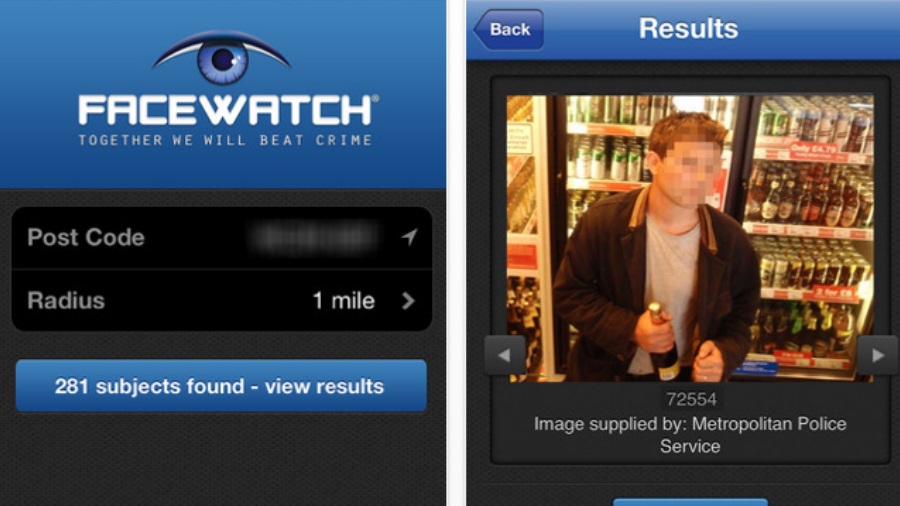The long app of the law
Shopping people to the cops? There's an app for that

I'm looking at a photo of a very bad man. He's Asian, early twenties, dressed in jeans, trainers, a t-shirt and what looks like a tracksuit top. Maybe he's a shoplifter, or maybe he started a fight. Maybe he's a terrorist!
He looks a bit like that guy that lives round the corner, the one who never says hello. Better safe than sorry, eh? I click Identify, type his name and his address, send 'em off.
This is brilliant. Who else do we have? Here's an old guy, white, looks about sixty. I wonder what he did? Maybe he's a kiddie fiddler. Hang on, isn't that Mr Smith who runs the newsagent? It bloody looks like him. He's obviously done something. Wait till I tell the lads about this.
Welcome to Facewatch ID, which is either the future of law enforcement or the sort of thing the Stasi used to dream about. It's a mobile app designed for iPhones, iPads and BlackBerries, and the idea is simple: enter your (London) postcode and the Met Police will show you a bunch of images taken from CCTV cameras. If you think you know who the person is, you can shop them.
Facewatch began as a way for businesses to share images of shoplifters, but the Met would like it to do much more. According to Met Police Assistant Commissioner Mark Rowley: "The Metropolitan Police Service is determined to exploit the opportunities presented by CCTV to solve crime.
"The general public can support us in this - both by providing us with images - and then helping us to identify those who are responsible for committing crime."
Criminals are bad, m'kay?
There's something about Facewatch ID being an app that disturbs me in a way that "have you seen this man?" posters and Crimewatch reconstructions doesn't. What sort of person is going to go "Will I play Angry Birds Space, or go on Twitter? Nah, I'm going to spot me some criminals"?
Sign up for breaking news, reviews, opinion, top tech deals, and more.
I feel the same way when people retweet photos of alleged iPhone thieves, road rage candidates and other miscreants. Here's a photo that somebody who knows somebody who knows somebody who knows somebody who knows somebody who knows somebody says is a bad guy! Get the bad guy! Please RT!
I think that attitude is what worries me about Facewatch ID: we're quick to trust that if someone points a finger, it's being pointed at the right person for the right reason.
The app makes a point of saying that "No inference should be drawn that any person pictured is wanted by the police for criminal activity", but that seems naive to me: after all, if there's one thing that says "the Police don't want this person", it's the Police showing you a picture of that person and asking "Who is it? Where do they live? What do you know about them?"
I'm not apologising for criminals, but criminal-ID apps worry me for three reasons. First, there's the assumption of guilt: you know they've done *something*, but you don't know what. Second, there's the fear of unintended consequences and mistaken identity
. And third, there's the possibility for malicious users — curtain twitchers, racists, people with grudges, the sort of people who hang out in the bottom half of the internet — to use the system to cause trouble. Making false accusations is a crime too.

Contributor
Writer, broadcaster, musician and kitchen gadget obsessive Carrie Marshall has been writing about tech since 1998, contributing sage advice and odd opinions to all kinds of magazines and websites as well as writing more than twenty books. Her latest, a love letter to music titled Small Town Joy, is on sale now. She is the singer in spectacularly obscure Glaswegian rock band Unquiet Mind.